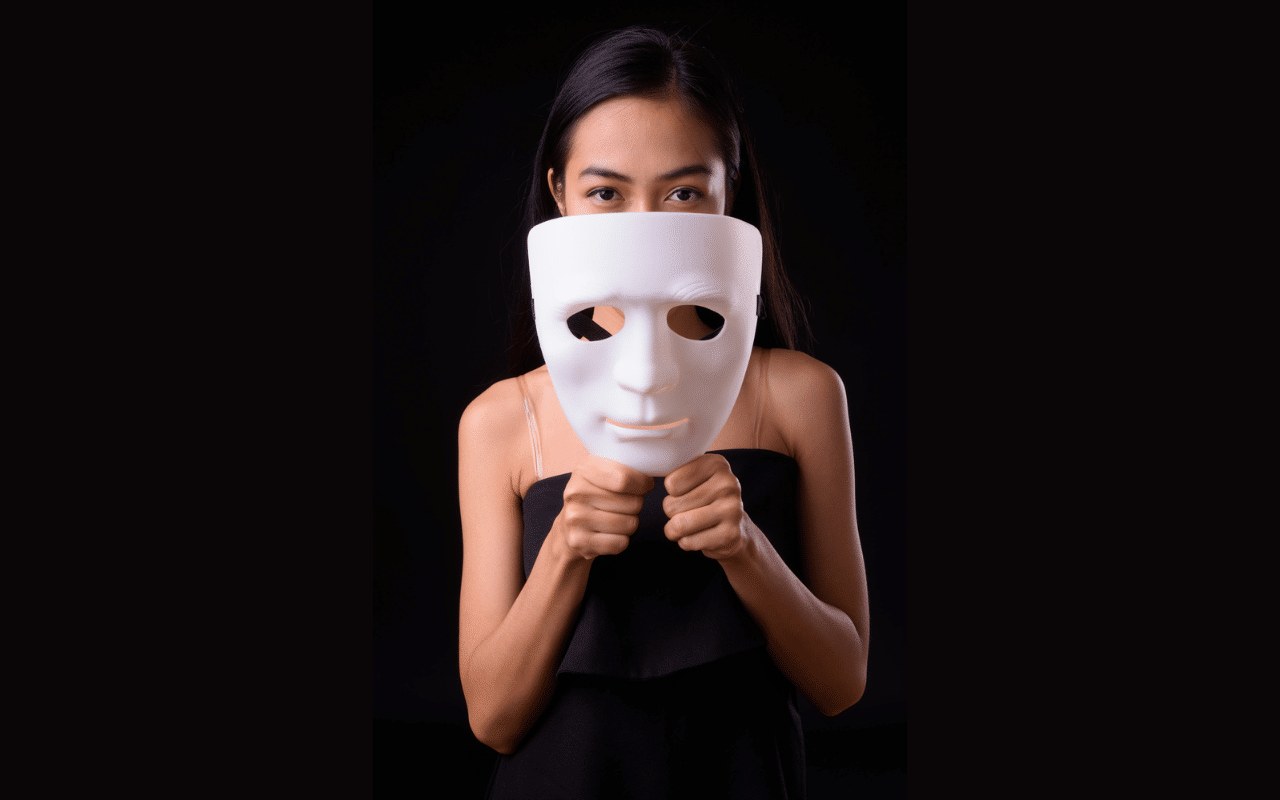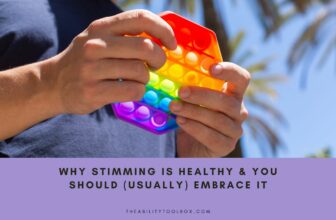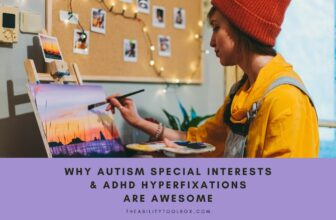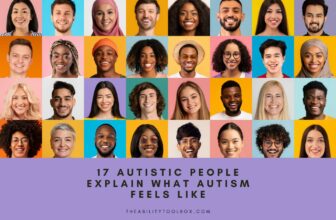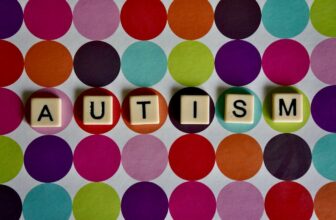Are you a diagnosed or suspected autistic person who often suppresses your need to stim or fidget, forces yourself to make eye contact with people, or rehearses social interactions over and over because you're afraid of saying the wrong thing? If so, you may be engaging in a sometimes necessary but often stressful coping strategy: autism masking.
Autism is a lifelong developmental disability that causes people to interact and communicate with the world around them in a different way. Autistic people also have sensory processing differences that affect how they experience their environment. Because of these factors, socializing can be difficult for autistic people. They’re typically less aware of social cues, struggle to read emotions, and might not like making eye contact with people or being touched in any way. While autism is different for everyone, one thing is usually the same: autistic ways of communicating are typically not accepted in this society, and thus autistic people are forced to adapt. This is where autism masking comes in.
What is autism masking?
Autism masking means hiding or camouflaging one's autistic traits in order to appear neurotypical. Autistic people who mask might force themselves to make eye contact with people even though it’s very uncomfortable for them, or they might follow a script for social situations in which they have taught themselves to respond in certain ways that are otherwise unnatural for them. Basically, an autistic person who’s masking is pretending to be someone they’re not so that they’ll be accepted in society.
Why do some people mask their autism?
There are many reasons for autistic people to start masking. The most common reason is so that they won’t face stigma or harassment. It has to do with safety, as in this society, being different in any way puts a target on your back. Especially for BIPOC, it’s often necessary to mask due to how they’d be mistreated if they show behavior that is a little strange to others. Another common reason for autistic people to mask is that they want to make friends and find that people won’t just take them as they are. They want a sense of belonging, and by hiding their autistic traits, they might be more successful at making a connection. Even when looking for a job or when wanting healthcare, autistic people may mask just to be taken seriously.
Do other neurodivergents mask their traits?
Typically, yes. Masking is something that many neurodivergent people do to fit in. For example, someone with ADHD might pretend to be following a conversation even though they’ve lost track of what is being said, instead of just admitting that they were briefly distracted. Someone with OCD might be hiding their rituals from others so as not to face stigma. And someone with Tourette's syndrome could be trying to hold back their tics while in public.
Examples of Autism Masking and Camouflaging
Masking autistic traits comes in many forms and everyone does it differently. Usually, there are three different categories of masking: hiding, mimicking, and forcing.
Hiding
Disguising stims is an example of hiding. Stimming (self-stimulatory behavior) is something many autistic people do to express their emotions or to calm themselves. It’s a repetitive movement such as rocking, hand flapping, leg bouncing, and fidgeting. It’s usually seen as strange by most people, which is why autistic people tend to hide it, which in turn leads to discomfort. Another example of hiding is hiding or minimizing personal interests. Autistic people often get very passionate about their interests, but find that their passion is seen as strange. By hiding it, they might fit in better.
Mimicking (Also Known as Mirroring or Imitating)
Mimicking is done to better pass as non-autistic. By observing how non-autistic people behave and copying that, autistic people hope to fit in. This includes but is not limited to mimicking facial expressions and gestures, scripting conversations, watching films and series to imitate how people behave, and rehearsing responses to questions. Because this kind of behavior doesn’t come naturally, social interactions can become extremely exhausting if a person is masking.
Forcing
Lastly, forcing is a part of autistic masking that’s probably the most uncomfortable. Autistic people may choose to force or fake eye contact while talking to someone, or they might push through sensory overload and sensory discomfort, such as loud noises, to not be seen as strange or “too sensitive.”
I recognize myself in aspects of this article. Could I be neurodivergent?
Everyone will sometimes pretend in social situations, even neurotypical people. It’s considered polite to listen to someone when they’re talking, even if you don’t find what they’re saying very interesting. And through trial and error, people learn what to do and not to do in certain situations. However, if you always feel like you have to hide certain aspects of yourself, or if you find that you’re following a script while socializing and are always busy trying to come across as “normal,” then you may be neurodivergent. Be sure to read up on autism and other types of neurodivergence, and learn about the experience of other neurodivergent people. Then, if you still feel like you could be neurodivergent, you can choose to go for an official diagnosis. However, self-diagnosis is also valid, as professional help isn’t always accessible.
The Effects of Autism Masking
Autistic camouflaging can be exhausting, as you’re essentially pretending to be someone you’re not all day. Masking can have certain benefits, for example, it can help with getting a job or building social skills, but usually, the costs of masking are higher, especially in the long run.
One of the things masking severely impacts is the diagnosing process. If an autistic person has been masking their traits from a young age, it’ll be harder for others, especially caregivers, to recognize that they’re autistic. This delays the identification of autism, which might impact the person later in life as they didn’t get the support they needed.
But that’s not the only problem. Masking autistic traits also often impacts mental health. In 2016 a study was conducted where women who masked regularly to meet the neurotypical standards said it exhausted them to do so. In a 2018 study, it was established that of the 111 autistic adults researchers interviewed, those that masked their autistic traits experienced more symptoms of depression. A year later, in a 2019 study, researchers found that autistic people who mask frequently experience more stress and anxiety. Furthermore, the risk of autism burnout is high. Autism burnout occurs when autistic people constantly push themselves to behave in a way that doesn’t come naturally to them, resulting in overwhelm, sensory overloads, and exhaustion, similar to regular burnout.
When all of these mental health issues persist, the risk of suicidal thoughts also increases. In a recent study, “lifetime suicidality” was liked to prolonged masking. While the study was relatively small (160 students of which 89.6% were women), it showed that people who mask often feel like a burden and feel suicidal because of that.
Lastly, those who mask frequently might experience a loss of identity. Because they’re always hiding who they truly are, as well as their interests and traits, they might feel like they’ve lost themselves and like they’re constantly tricking people into believing they’re someone different.
If you are experiencing suicidal thoughts, you can reach out to the National Suicide Prevention Helpline. They’re available 24/7 at 988. If you’re not in the US, find your local helpline here.
I am neurodivergent and I have been masking. How do I unmask and be my authentic self?
With the increasing awareness of what neurodivergent masking is, more and more neurodivergent people wish to unmask. However, this isn’t always as easy as it seems. Some people have been masking for such a long time that they’re unable or struggling to take the mask off because masking has become second nature to them, even if it exhausts them. Sometimes it’s impossible to take off the mask completely because it might risk you losing your job or it might create unsafe situations. Fortunately, there are things you can do to get closer to your authentic self.
Unmasking starts with learning who you are and what your needs are. Ask yourself, when you are alone, what makes you comfortable? What are you like? And how is that different from how you behave around others? It’s like playing a game of “spot the differences.” By understanding what traits you change to adapt, you can figure out if those are traits you can preserve instead.
Second, you can try to figure out what you do for other people to fit in. Do you force eye contact because you’ve been told to look at people when you speak to them? Or maybe people have told you to stop moving when you were stimming. Someone might have told you to stop talking about your interest so much or told you that you talk too much. By making a list of the things you’ve changed about yourself to please other people, you can start figuring out which of those things can be reversed. You have to remember that it’s not your job to make people happy all the time, and that if they can’t accept you for you, then they might not be worth your time.
Lastly, it’s important to be nice to yourself. It’s easy to think you’re the problem when in reality communication and socializing is a group effort. You’re allowed to be passionate about things and communicate in a way that works for you. Finding a neurodivergent community can really help with self-acceptance, especially if you experience internalized ableism.
How can I support a loved one who is struggling because of masking their autistic traits?
Seeing a loved one struggle is never easy, and for outsiders, it may be difficult to understand sometimes what it’s like to be autistic, let alone mask autistic traits. If you want to support your autistic loved one, the most important thing is to create a safe space for them. Accept them for who they are and don’t make fun of or criticize their autistic behaviors, including stims. When communicating, don’t demand eye contact if they’re not comfortable with that, and try to communicate as clearly as possible without metaphors, sarcasm, or other expressions your loved one might not understand.
Encourage your loved one to use sensory coping tools such as earplugs or headphones and sensory toys and defend their right to do so in public without judgment. And if your autistic loved one requests to be alone, for example, because they are overstimulated, give them that space and don’t take it personally.
If your loved one is struggling mentally because of autism masking, suggest seeking out professional help. Even if you’ve created a safe space where your loved one can be their authentic self, they still have to face the rest of the world, and that world often isn’t accommodating them. That’s why mental problems can persist even if they have the safety of their home, friends, or family to retreat to.
In the end, every autistic person is different and will struggle with different things. Ask your loved one about their needs and accommodate them. That’s the best way to support them.
Learn More About Autism Masking from Peer Experts
Learn More About Autism & Neurodiversity in The Ability Toolbox
- Fidget Toys for Skin Picking, Hair Pulling, and Dermatillomania
- 20 Fidget Blankets for Autism, ADHD, Alzheimer’s, and Sensory Needs
- Understanding Misophonia and Misokinesia: No, We Can’t Just Get Over It
- Autism Acceptance Pins, Stickers, & Accessories – Celebrate Neurodiversity
- Stylish Chewelry – Sensory Chew Jewelry for Adults with Autism & ADHD
Image via Deposit Photos
I’m Anna (they/them), a 26-year-old neurodivergent freelance writer and sensitivity reader from the Netherlands. I usually write comics and ttrpg content but on occasion I like to write blogs about neurodivergent experiences.

